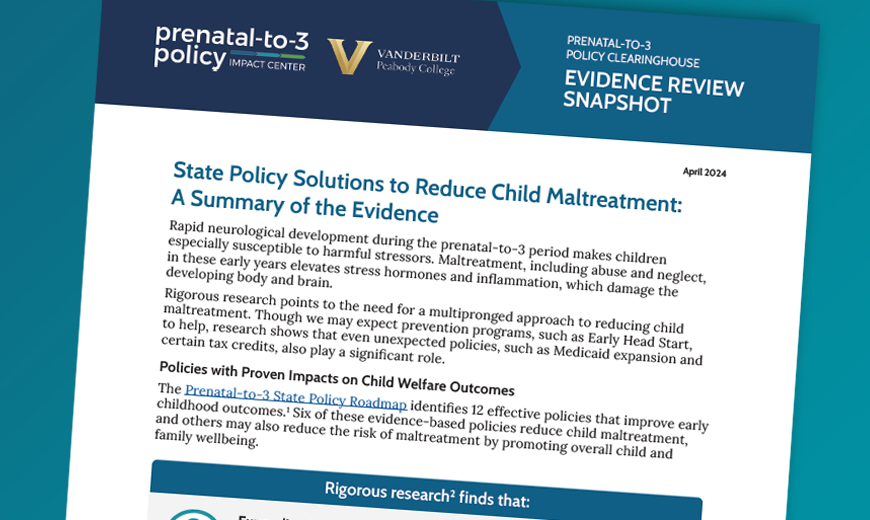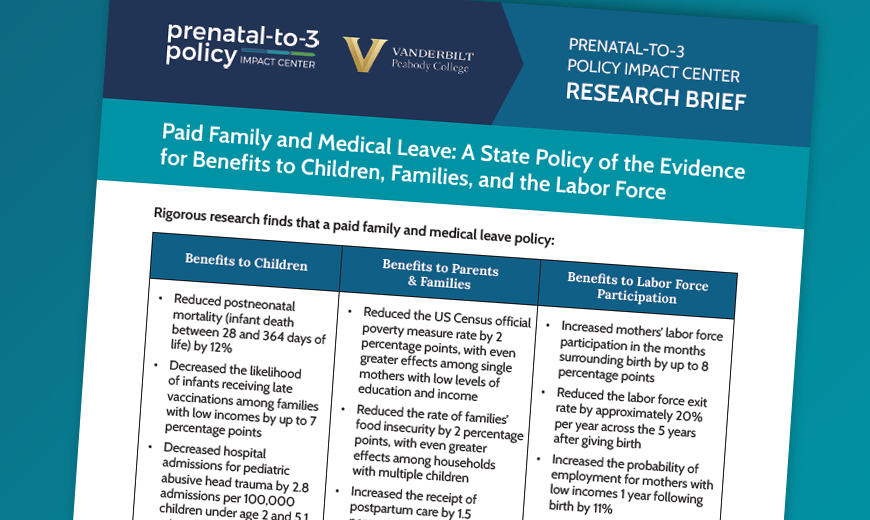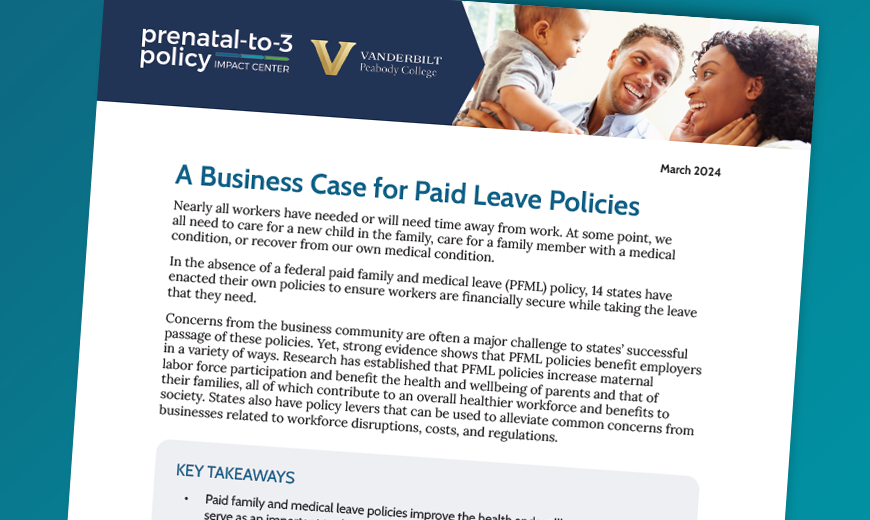- Home
- /
- Research Topics
- /
- Two-Generation Programs for Parental Employment
Two-Generation Programs for Parental Employment
Two-generation programs for parental employment serve both children and their parents simultaneously, aiming to empower parents to secure and retain gainful employment while providing children with support needed for successful early development. Such programs maximize the benefit to families by ensuring parents are able to access employment training and other support services without sacrificing quality care for their children.
Featured
Two-generation programs for parental employment are services and programs that serve both children and their parents simultaneously, aiming to empower parents to secure and retain gainful employment while providing children with support needed for successful early development.
The Latest
- Blog
- |
In late February, the federal government released a final rule that makes regulatory changes to the Child Care and Development Fund. The rule requires action from many states to ensure child care is affordable and
- News
- |
In a newly published essay, Prenatal-to-3 Policy Impact Center Executive Director Dr. Cynthia Osborne outlines the five stages of public policy implementation—and the research critical for each stage. The essay draws from a rich history
Did you know state policies play an important role in reducing child maltreatment? Rapid neurological development makes children especially susceptible to harmful stressors, such as maltreatment, during the prenatal-to-3 period. Though we may expect prevention
- Blog
- |
Just like that, we find ourselves 3 months into the 2024 legislative sessions! In this month’s post, we cover legislative trends in five prenatal-to-3 policy areas we’re tracking across multiple states. Some efforts are near
Rigorous research finds that statewide paid family and medical leave (PFML) policies have broad beneficial impacts to children, parents and families, and the labor force. This brief provides examples of the impacts of state PFML
Nearly all workers have needed or will need time away from work. When life and family responsibilities necessitate time off, paid family and medical leave (PFML) policies serve as an important tool to support both







